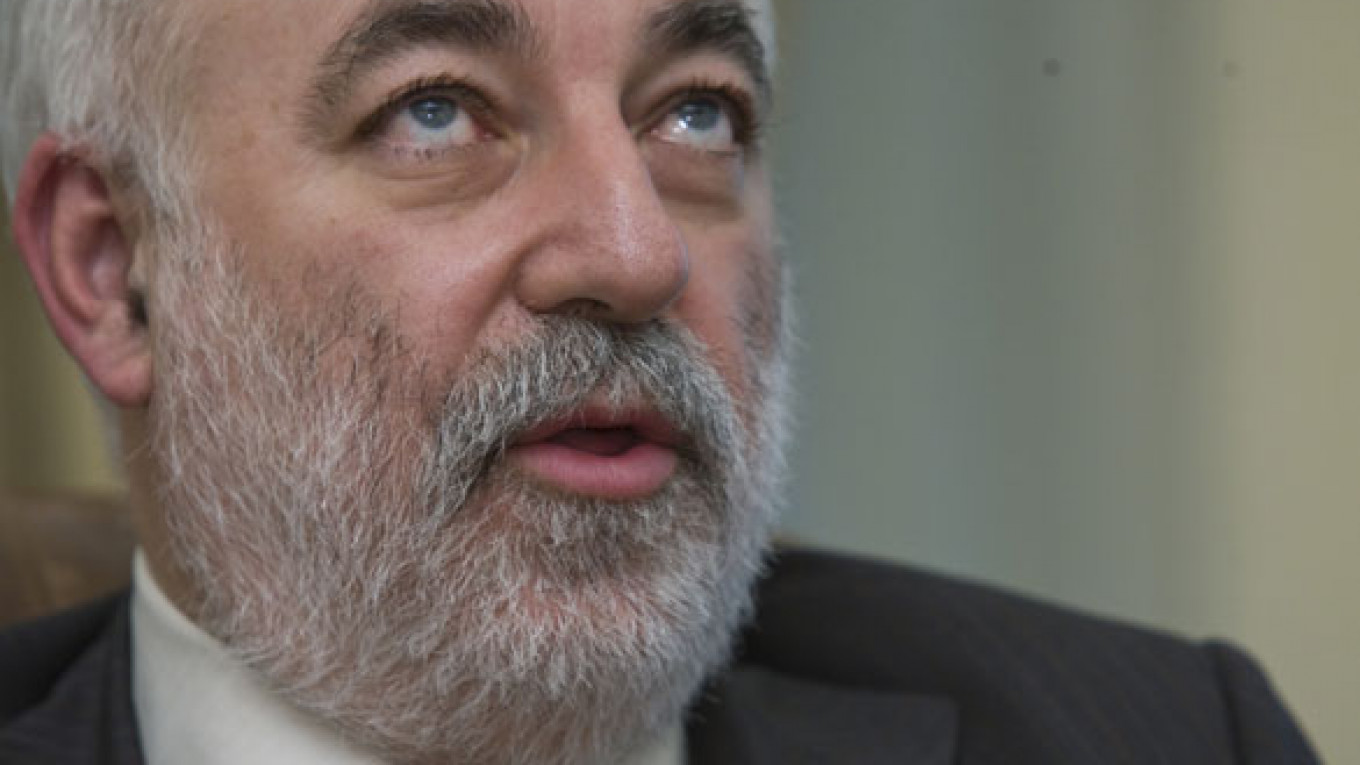LUKoil will become one of the core investors of the technology hub in Skolkovo and will locate its research center there beginning in 2014, the company said Monday.
LUKoil president Vagit Alekperov and Skolkovo head Viktor Vekselberg signed a memorandum of understanding about the oil giant’s participation in the project, including plans to invest into construction of offices and laboratories, LUKoil said in a statement.
“In fact, construction of the Skolkovo Innovation Center will be financed by LUKoil,” Vekselberg said at an innovation forum in Skolkovo.
The sides declined to disclose the size of the investment, but Alekperov said his company would finalize the number by the end of this year.
LUKoil plans to focus on research in the areas of oil production and refinery, alternative energy sources and information technologies.
The sides will create a working group to develop and implement the road map and will sign an agreement by April 1, the statement said.
State nuclear company Rosatom also signed a memorandum with the Skolkovo Foundation during the forum, describing its plans to let other companies at the innovation center use its laboratories and other facilities.
Among the company's priority areas in the innovative hub are nuclear technologies, energy, medicine and computing, Rosatom said in a statement.
The company also proposes to create its own research and technology center at Skolkovo.
Computing and IT services giant IBM said Monday that it's interested in partnering with Skolkovo and may develop its Smart City project there aimed at modernizing infrastructure.
IBM's sales director for Eastern Europe, Andrei Tikhonov, told RIA-Novosti that the company is considering “different options of cooperation,” including locating software development laboratories at Skolkovo,
Meanwhile, the president's economic aide, Arkady Dvorkovich, said the government plans to draft amendments to legislation next year that will stimulate state purchases of innovative products, as the Skolkovo technology hub is drawing businessmen, scientists and government agencies closer together.
“We are on different planets so far … There are very few intersection points,” he said at the forum.
The government is working on amendments to the law on state purchases, which will be drafted by the spring and may go into effect in the second half of 2011, Dvorkovich said.
The new regulation is expected to boost state demand in a number of innovative areas, including nanotechnologies. The amendments will also allow the government to set additional requirements for the quality of innovative products.
“Such amendments are being prepared. We expect that the state demand at the federal, regional and local levels may become an important … element of demand for innovative products, as has happened in most developed countries,” Dvorkovich said, Interfax reported.
Dvorkovich also said he expects big domestic companies, both private and state controlled, to launch innovative development programs early next year.
Russia is considering the option of easing or even canceling the visa regime for Skolkovo residents, Dvorkovich said at a separate conference.
“We really need that highly skilled foreign specialists live and work here,” he said, adding that the eased visa regime would mean cancellation of work permits or introducing special visas for entrepreneurs involved in startups.
President Dmitry Medvedev will chair a meeting of his modernization commission in Skolkovo on Tuesday.
A Message from The Moscow Times:
Dear readers,
We are facing unprecedented challenges. Russia's Prosecutor General's Office has designated The Moscow Times as an "undesirable" organization, criminalizing our work and putting our staff at risk of prosecution. This follows our earlier unjust labeling as a "foreign agent."
These actions are direct attempts to silence independent journalism in Russia. The authorities claim our work "discredits the decisions of the Russian leadership." We see things differently: we strive to provide accurate, unbiased reporting on Russia.
We, the journalists of The Moscow Times, refuse to be silenced. But to continue our work, we need your help.
Your support, no matter how small, makes a world of difference. If you can, please support us monthly starting from just $2. It's quick to set up, and every contribution makes a significant impact.
By supporting The Moscow Times, you're defending open, independent journalism in the face of repression. Thank you for standing with us.
Remind me later.






